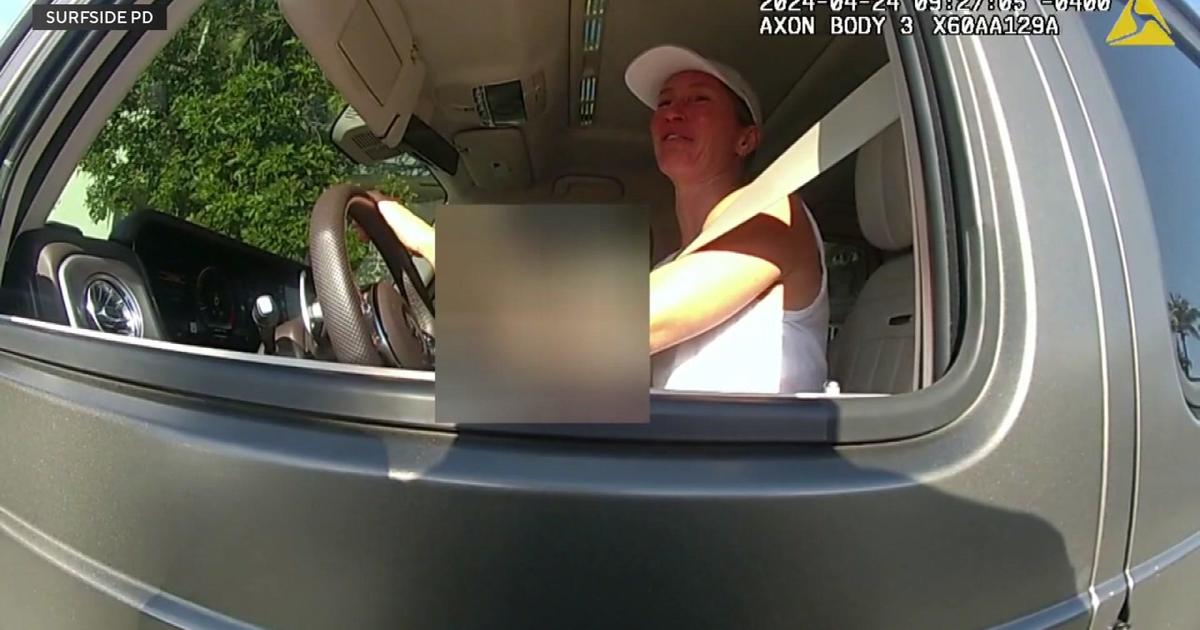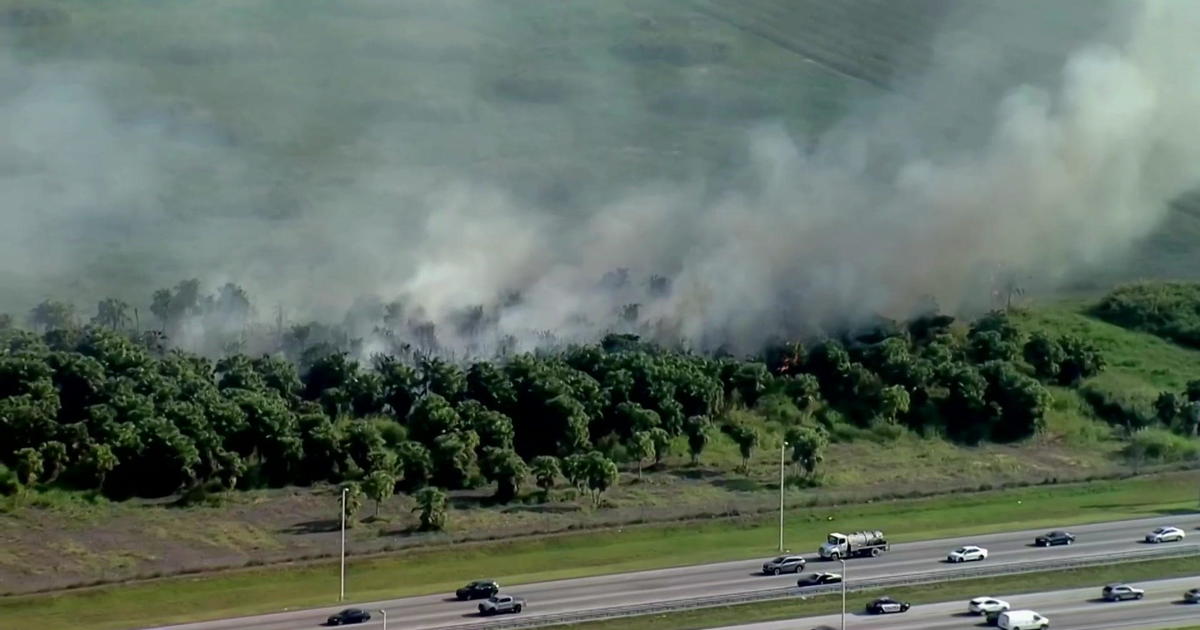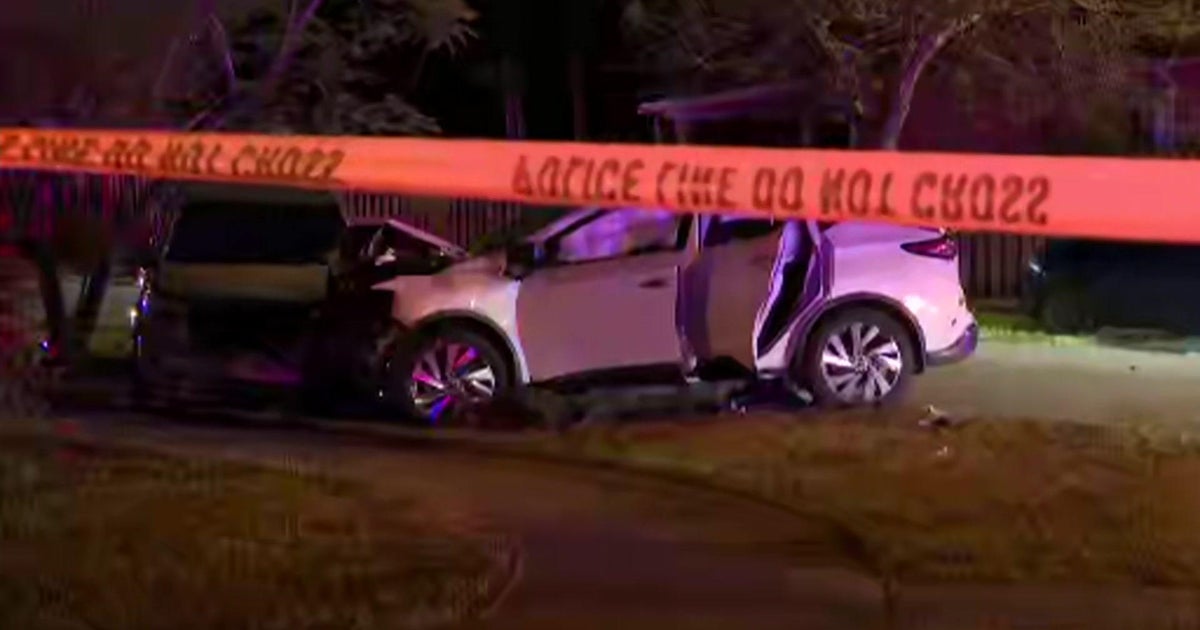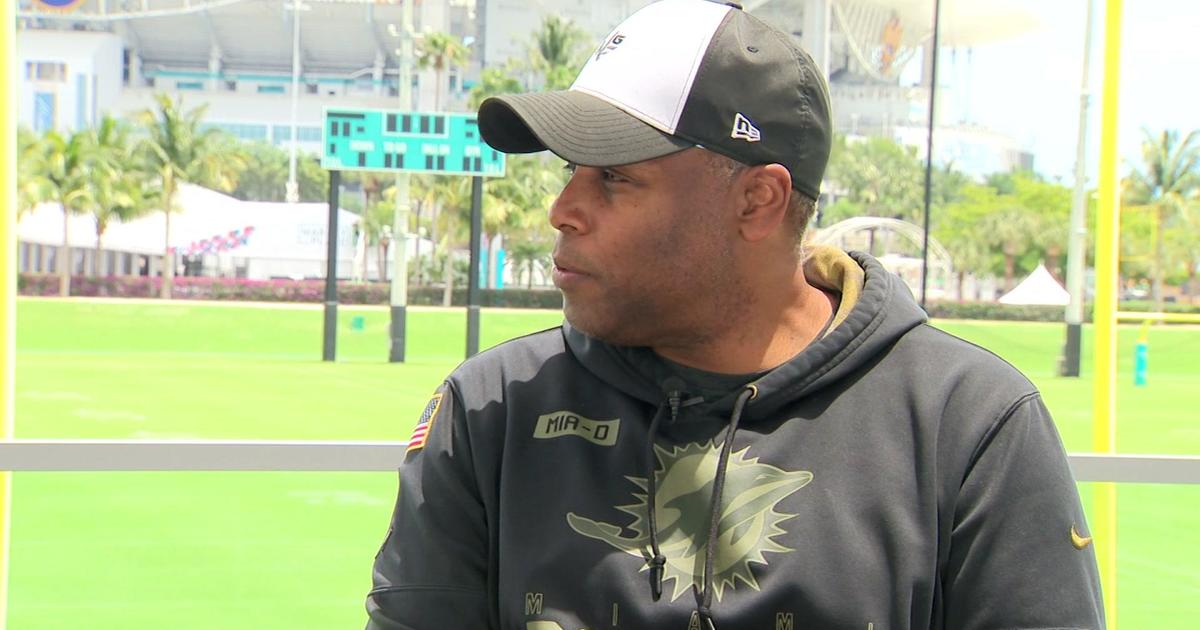Hurricane Andrew: A Look Back 25 Years Later
Follow CBSMIAMI.COM: Facebook | Twitter
MIAMI (CBSMiami) - In the morning dark, 25 years ago a howling wind blew across South Miami-Dade and when dawn broke it revealed unspeakable ruin. The most costly natural disaster in the history of the U.S. There was terrible loss mirrored tens of thousands of times over. Block after block, mile after mile, there was devastation after a night that we spent cowering in homes, many that blew down around us.
"I was in the closet, laying on top of my baby," one woman said in the light of dawn, standing by what used to be a house.
Everywhere there were surreal images: A large sail boat sitting on a roadway two blocks from the bay. Cars and trucks tossed about like Tonka toys. If we lost our homes we also lost places where we shopped, and ate. Some churches, their roofs ripped off, looked like the devil himself had come to call. Everything that makes a community was gone with the wind.
Homestead Airforce Base, the economic jet engine of South Dade was demolished. War planes were thrown around like cracked pieces from a G.I. Joe set. Hangers flattened.
Utility crews poured into the area not knowing where to start.
"Oh, man. This is like somebody nuked this whole area," one lineman remarked as he got out of his truck.
Ice and water were gold.
Profiteers made a fortune on truck loads of ice that sold in minutes. One woman sobbed over missing out as the last bag was sold in a line she had been standing in. But there were good turns.
"We're trying to help out," said a man whose family had driven their van down from Broward, and were distributing lunches. A woman and her three kids did not get lunch. The baloney sandwiches and milk had run out.
Do you know where your next meal is coming from, a reporter asked. "No, I don't," she said, a look of hopelessness on her face.
A Howard Johnson's became a field hospital.
A little boy was bawling as he lay being tended to on a cot. A wall fell on the boy during Andrew three days earlier. A volunteer doctor diagnosed a skull fracture, and remarked over all the misery around him.
"They're without their roofs, they're without their water, without electricity. It's more like a third world country right now," the doctor said.
Looters went to work. Police would arrest hundreds. Signs were everywhere reading "You loot, we shoot."
One man was holding a rifle outside his heavily damaged home. "It's been a long three days without sleep, partner," he told a reporter.
A sign on a roof expressed a sense of abandonment. "President Bush, we need help," read the sign in letters eight feet tall.
From the county's emergency services boss a question heard 'round the world: "Where in the hell is the cavalry on this one!" exclaimed EOC Director Kate Hall.
President George H.W. Bush said he would not "participate in the blame game."
While Bush bristled, he also got busy.
Huge military planes began to arrive disgorging trucks and supplies and troops and a commander declared, "the cavalry is at full gallop now."
The military fed the masses and erected massive tent cities. Thousands left homeless were housed in hot tents, but at least out of the rain and protected by nets from mosquitos that filled the air.
"My teacher asked me where did I live, my address and stuff," one little boy said. "I told her tent city."
On the street where this reporter lives, in what is now Palmetto Bay, the sound of chain saws filled the air for days. My wife's father came down from Jacksonville to help, and brought his camcorder.
As he recorded the devastation in the neighborhood, his comments were recorded over the noise of the gas-powered saws.
"It's the damndest thing I ever saw," my father-in-law said.
It was the damndest thing any of us ever saw, and we could not imagine the hard weeks and years that would lie ahead. Some went months without electricity. Thousands lived in tents, then FEMA trailers. Telephone service was out for months. Many people bought their first ever cell phones. It would be a year before cable television was restored.
This reporter's family still lives in the same house. We now have hurricane code shutters, impact windows, and keep hurricane supplies on hand. Much has changed. Our homeowner's insurance now costs more than five times what it did before Andrew came to call.



